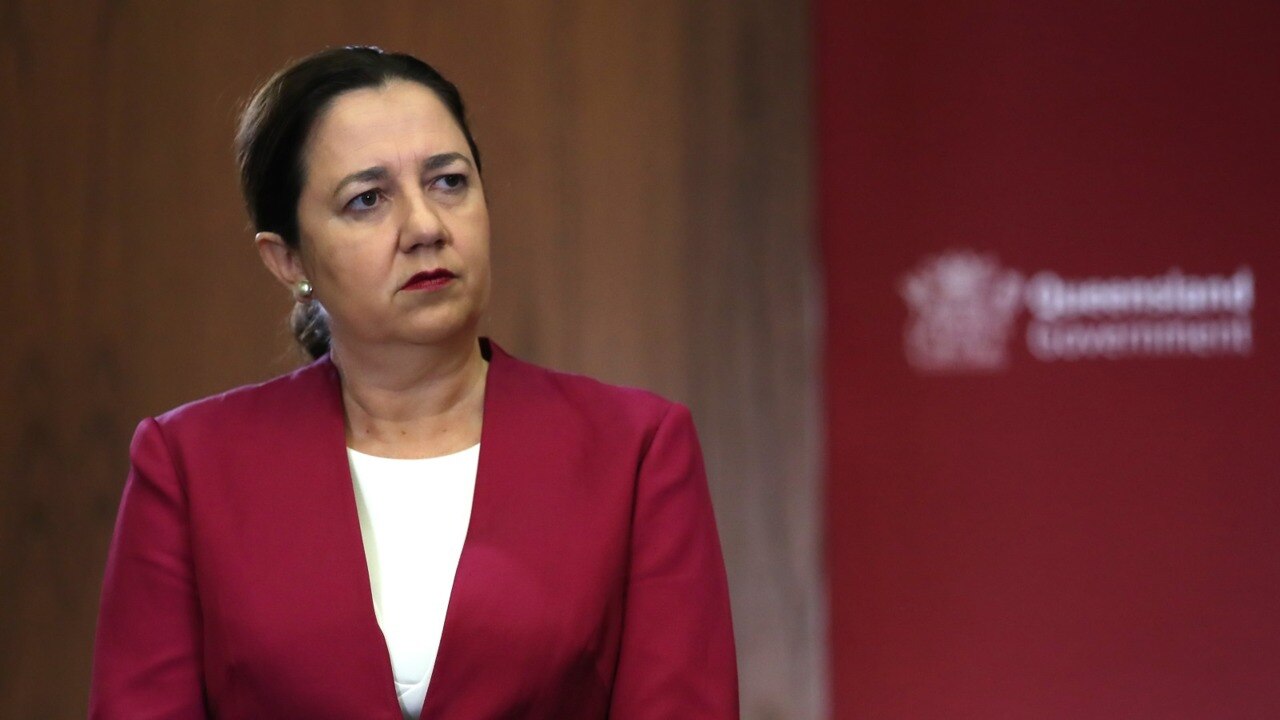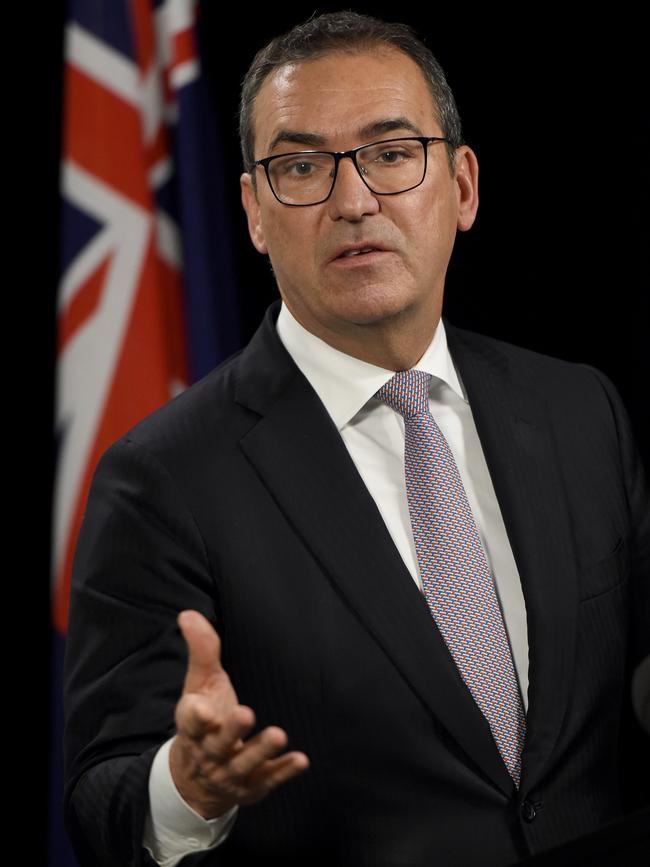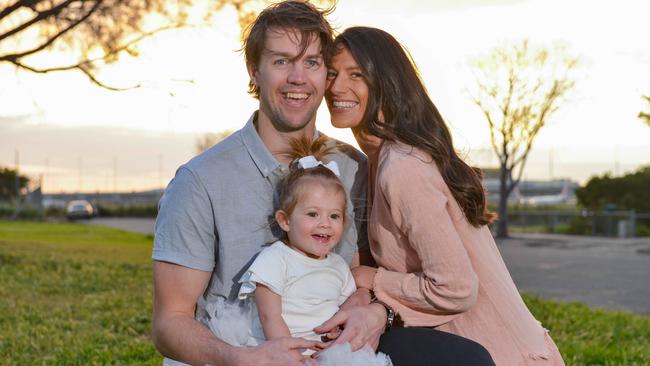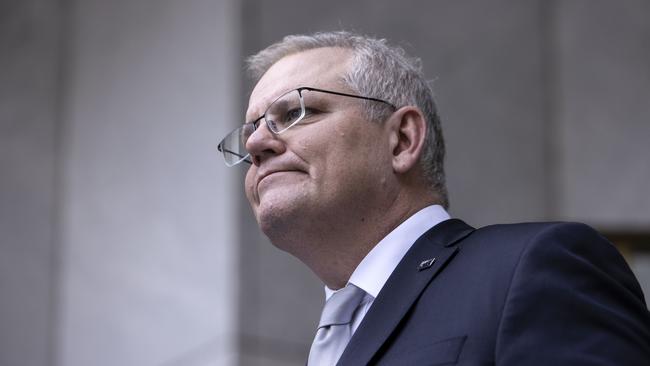Some SA coronavirus restrictions to ease from midnight
South Australia’s continued success in the fight against coronavirus is about to earn us the return of some treasured freedoms. SEE WHAT’S CHANGING

Coronavirus
Don't miss out on the headlines from Coronavirus. Followed categories will be added to My News.
- ‘Double standards’ leave restaurants in critical condition
- Are you getting the most from your Advertiser subscription?
South Australians can enjoy more freedom at weddings, funerals, pubs, clubs, offices, and AFL games from today after coronavirus bans were eased amid industry calls for a more urgent respite of restrictions.
The State Government’s Transition Committee has authorised the numerous COVID-19 rule changes, days after SA became virus free.
Officials said border bans with NSW and ACT may also be lifted by the school holidays.
The decisions, coming after business feedback, came after no active (infectious) patients, were recorded this week for the first time since July 21.
As SA Health recorded a 12th day of zero daily cases and Victoria’s rate of infections continued to fall, new rules permitted patrons to drink alcohol while seated at a bar from midnight last night, if no food preparation occurred.
Patrons must still sit to eat and drink at tables.

Australian Hotels Association SA general manager Ian Horne welcomed the changes but said more urgent relaxation of rules was needed as operators faced a “financial cliff” within weeks when federal government JobKeeper payments stopped, while bank loans and other bills are renegotiated or restarted.
Today, the committee, comprising senior public sector officials including state COVID co-ordinator Police Commissioner Grant Stevens and chief public health officer Professor Nicola Spurrier, also allowed 150 attendees at wedding and funerals, up from 100 people.
Dancing remains banned at weddings or licensed venues but bridal waltzes are allowed.
“Over time, we can continue to look at those restrictions,” Premier Steven Marshall said yesterday.
“This is a balancing act, and it is a very difficult balancing act.” Mr Stevens said “common sense” should be used.
Football crowd numbers will also be boosted from 10,000 people and corporates at Adelaide Oval to 25,000 over the next few weeks as part of the state’s bid for preliminary AFL finals next month.
Up to 15,000 fans will be allowed at Tuesday’s Adelaide Crows match against Greater Western Sydney and more spectators will be allowed for future games if fans follow social distancing rules, and subject to SA Health approval.
While no decisions on the easing of borders with New South Wales or the ACT were made, Mr Marshall said rules should be relaxed by the school holidays in three weeks’ time. This would only be reconsidered if there had been little cases and no community transmission over 14 days.
“We know that soft border arrangement … is a major impediment for business and family reunions,” he said. “As soon as we can possibly lift it, I guarantee that’s precisely what we will be doing.”
For the first time since the pandemic erupted in March, Mr Marshall urged people back into offices if their workplace was adhering to strict COVID-19 rules and could allow for staggered starts to avoid congestion in foyers, lunch rooms or lifts.
Hotel quarantine will also be increased to allow more people to be repatriated from overseas as health authorities investigate other locations to house returning travellers.
While no upper cap has been determined, currently up to 500 travellers can arrive in SA every week. Prof Spurrier, who said she would not be mandating masks on public transport despite an expected surge in use, said an easing restrictions must be gradual.
“We still have got a significant risk with Victoria,” she said. “While it has vastly improved from where we were three weeks ago … it is much safer to do this incrementally.
“If you have no defences in place then it is a very short time before those case spread and you have larger problems and … you have to get into a shutdown sort of situation.”
Despite warmer weather, she said overseas studies showed no seasonal difference in spreading the “very sneaky and irritating virus”.

Love in the time of coronavirus
By Celeste Villani
Bride-to-be Karla Santoro says it has been difficult to get excited about her big day in a world dictated by coronavirus restrictions.
Ms Santoro and her fiance, Tyson Slattery, have been patiently waiting for COVID-19 restrictions to be eased to ensure their November 14 wedding can go ahead.
“To be honest, we haven’t had a chance to get excited about it all,” Ms Santoro said.
“We just don’t know what is happening.
“Wedding planning itself has not been stressful, it is just this COVID-19 stuff.”
Ms Santoro has welcomed news that a cap on the number of people allowed at weddings has been increased, guaranteeing she can invite everyone on her guest list.
However, for her wedding to definitely go ahead, she wants both drinking and dancing to be allowed at the couple’s reception. Currently, drinking alcohol while dancing is prohibited, so brides and grooms have to choose one or the other for their big day.
For both to occur, SA Health needs to approve the venue’s COVID-19 management plan.
But assessment of those plans has been put on hold due to coronavirus outbreaks in Victoria and NSW and their potential risk to SA.
Ms Santoro is urging SA Health to start granting the approvals to help brides and grooms-to-be plan their big day, as well as keep wedding suppliers in business.
“We’ve always wanted an intimate wedding, so the numbers are good … but (the plans) need to start being approved for the sake of the wedding industry,” she said.
“You can’t have a wedding without drinking and dancing.
“You can play footy and all that but you can’t dance.”
Borders to fully reopen by Xmas
By Claire Bickers
All states bar Western Australia will work towards opening their borders by Christmas using a new “hot spot” zones model.
Premier Steven Marshall, pictured, signed SA up to the plan at national Cabinet talks with Scott Morrison and other state leaders yesterday.
Under the model, states would scrap strict border closures and replace them with travel restrictions to and from COVID-19 hot spots.
It could also be the basis for opening a travel bubble with New Zealand, the Prime Minister said. A hot spot for cities would be 10 locally-acquired cases a day for three consecutive days, and in regional areas, it would be three cases a day over 72 hours.
States are negotiating on the number of cases to define a hot spot but Mr Morrison said he believed the settings determined by the medical expert panel were “appropriate”.
The tragic death of an unborn baby last week whose mother had to fly to Sydney rather than Brisbane for treatment prompted Mr Morrison to push for the new model, which is similar to Denmark’s “traffic light” system.

More Australians returning home from overseas are also likely to fly into Adelaide after national Cabinet agreed to “boost the capacity for inbound arrivals into Australia”.
While states have not yet decided to lift Australia’s 4000-a-week cap on international arrivals, leaders agreed to try to divert more flights to Adelaide, Perth, Darwin, Canberra and even Tasmania rather than Sydney which is “at capacity”. All states except WA have also agreed to design a new road map for reopening Australia by December, similar to the three-step blueprint announced in May, which was disrupted by Victoria’s second wave.
“What’s different about this plan from the last one is it just isn’t about how many people you can have in a cafe, as important as that is,” Mr Morrison said.
“It’s about how the testing regimes have to work, the availability of passenger manifests for people moving around the country, the sort of surveillance testing arrangements which can be … through the testing of sewage or … the sort of ratios you need to hit to ensure that you can have a confidence about the level of outbreak,” he said.
The road map was necessary so states could be confident about people moving between regions, he said.
SA has also signed up to a code of conduct that will allow agriculture workers to cross borders more easily where they need to for work.
WA Premier Mark McGowan said his state did not need to be physically reconnected with the rest of the country any time soon.

